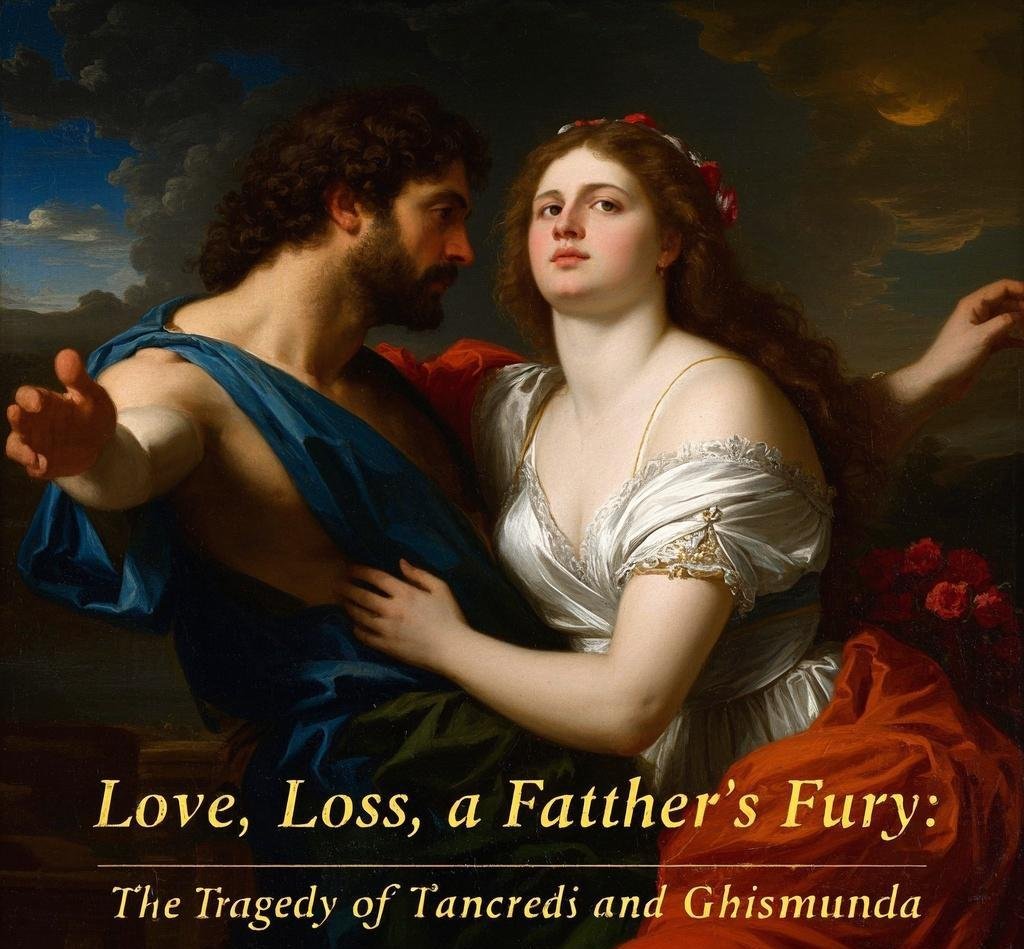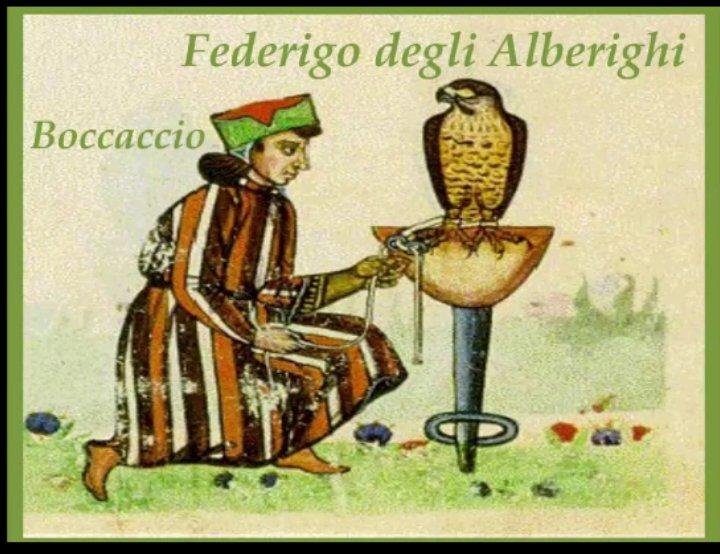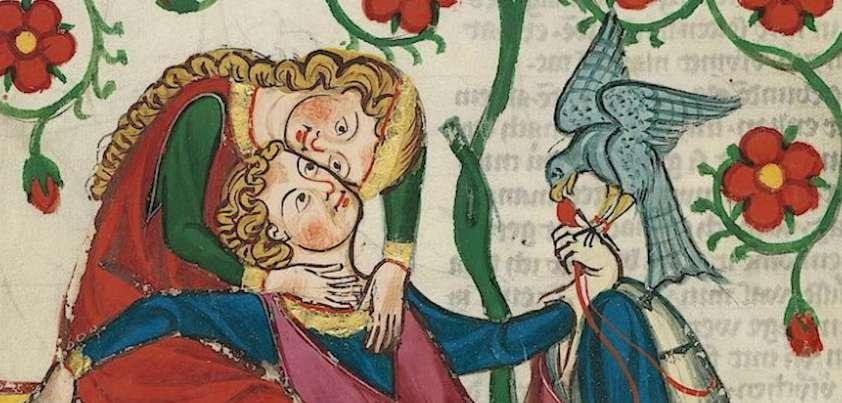Title: Wit, Virtue, and the Power of Rhetoric: The Tale of Federigo's Falcon
Introduction:
Boccaccio's The Decameron offers a rich tapestry of 14th-century life. Among its many tales, "Federigo's Falcon" (Fifth Day, Ninth Tale) stands out for its poignant exploration of courtly love, sacrifice, and fate. This tale, told by Fiammetta, skillfully blends humor with profound emotion, affirming the enduring power of virtue and genuine affection.
Summary:
A young Florentine nobleman named Federigo degli Alberighi wastes his wealth chasing after Monna Giovanna, his unfulfilled love. Desperate, he takes his final treasure—a gorgeous falcon—to a farm. Now a widow, Monna Giovanna and her sick son move close by. On his deathbed, the son, enthralled by Federigo's falcon, longs for it. Unaware of her actual function, Federigo cruelly kills and serves his pet falcon as their food in an attempt to commemorate his favorite guest. Monna Giovanna is moved when she hears about Federigo's sacrifice and her son's yearning. Despite her brothers' desires for a more successful match, she chooses Federigo over fortune after the death of her son because of his morality.
Analysis:
Its main theme is the victory of devotion and virtue over worldly worries. Federigo's unwavering love, which leads to the sacrifice of his most valuable asset, demonstrates his profound moral fiber. The crucial shift is Monna Giovanna's; after initially being realistic, she comes to see Federigo's genuine value and selflessness.
Federigo unintentionally sacrifices the precise item Monna Giovanna wants, and Boccaccio skillfully uses irony in this situation. The result of this dramatic irony is unexpected and sad. The falcon is a potent symbol in its own right. It first symbolizes Federigo's remaining fortune; but, its sacrifice turns it into a sign of unwavering loyalty, opening the door for both his atonement and Monna Giovanna's acceptance. Highlighting the excesses of courtly love, the first descriptions of Federigo's lavish spending contain subtle humor.
With its emphasis on chivalry and loyalty, the story embodies the ideals of the 14th century, especially courtly love. Federigo, despite his financial demise, exemplifies these principles. The narrative also discusses the pressure on women to get married again and social hierarchy. But Monna Giovanna's decision to wed Federigo because of his virtue—despite his humble background—subtly questions these expectations, implying that genuine nobility is a matter of character.
"Federigo's Falcon" still has resonance today because it examines love, sacrifice, and human connection in a timeless manner. Selfless love is still universal, and the tale serves as a reminder that genuine value is determined by character and honesty rather than material belongings.
Personal Response:
I was particularly struck by Federigo's happiness as a result of an unexpected turn of events. His desperate act of selflessness ultimately exposes his true nature and wins Monna Giovanna over. Because of its deft construction and emotional depth, I really appreciated the story. In addition to inspiring awe and sorrow, Boccaccio masterfully illustrates the irony of the falcon's sacrifice leading to a larger reward.
Conclusion:
"Federigo's Falcon" deepens our understanding of morality, selflessness, and the unpredictability of interpersonal interactions. Boccaccio shows that sincere dedication can result in unanticipated satisfaction and that true love transcends financial wealth. It is still a fascinating and timely read today because of its ageless topics, deft literary methods, and subtle depiction of human emotion. It serves as a reminder that selfless sacrifice frequently results in the most powerful displays of love.
#The_Decameron
#Giovanni_Boccaccio
#Literary_Analysis
#Literature
#Classic
#College_Assignment
#Storytelling
#Blog_EssayTitle: Wit, Virtue, and the Power of Rhetoric: The Tale of Federigo's Falcon
Introduction:
Boccaccio's The Decameron offers a rich tapestry of 14th-century life. Among its many tales, "Federigo's Falcon" (Fifth Day, Ninth Tale) stands out for its poignant exploration of courtly love, sacrifice, and fate. This tale, told by Fiammetta, skillfully blends humor with profound emotion, affirming the enduring power of virtue and genuine affection.
Summary:
A young Florentine nobleman named Federigo degli Alberighi wastes his wealth chasing after Monna Giovanna, his unfulfilled love. Desperate, he takes his final treasure—a gorgeous falcon—to a farm. Now a widow, Monna Giovanna and her sick son move close by. On his deathbed, the son, enthralled by Federigo's falcon, longs for it. Unaware of her actual function, Federigo cruelly kills and serves his pet falcon as their food in an attempt to commemorate his favorite guest. Monna Giovanna is moved when she hears about Federigo's sacrifice and her son's yearning. Despite her brothers' desires for a more successful match, she chooses Federigo over fortune after the death of her son because of his morality.
Analysis:
Its main theme is the victory of devotion and virtue over worldly worries. Federigo's unwavering love, which leads to the sacrifice of his most valuable asset, demonstrates his profound moral fiber. The crucial shift is Monna Giovanna's; after initially being realistic, she comes to see Federigo's genuine value and selflessness.
Federigo unintentionally sacrifices the precise item Monna Giovanna wants, and Boccaccio skillfully uses irony in this situation. The result of this dramatic irony is unexpected and sad. The falcon is a potent symbol in its own right. It first symbolizes Federigo's remaining fortune; but, its sacrifice turns it into a sign of unwavering loyalty, opening the door for both his atonement and Monna Giovanna's acceptance. Highlighting the excesses of courtly love, the first descriptions of Federigo's lavish spending contain subtle humor.
With its emphasis on chivalry and loyalty, the story embodies the ideals of the 14th century, especially courtly love. Federigo, despite his financial demise, exemplifies these principles. The narrative also discusses the pressure on women to get married again and social hierarchy. But Monna Giovanna's decision to wed Federigo because of his virtue—despite his humble background—subtly questions these expectations, implying that genuine nobility is a matter of character.
"Federigo's Falcon" still has resonance today because it examines love, sacrifice, and human connection in a timeless manner. Selfless love is still universal, and the tale serves as a reminder that genuine value is determined by character and honesty rather than material belongings.
Personal Response:
I was particularly struck by Federigo's happiness as a result of an unexpected turn of events. His desperate act of selflessness ultimately exposes his true nature and wins Monna Giovanna over. Because of its deft construction and emotional depth, I really appreciated the story. In addition to inspiring awe and sorrow, Boccaccio masterfully illustrates the irony of the falcon's sacrifice leading to a larger reward.
Conclusion:
"Federigo's Falcon" deepens our understanding of morality, selflessness, and the unpredictability of interpersonal interactions. Boccaccio shows that sincere dedication can result in unanticipated satisfaction and that true love transcends financial wealth. It is still a fascinating and timely read today because of its ageless topics, deft literary methods, and subtle depiction of human emotion. It serves as a reminder that selfless sacrifice frequently results in the most powerful displays of love.
#The_Decameron
#Giovanni_Boccaccio
#Literary_Analysis
#Literature
#Classic
#College_Assignment
#Storytelling
#Blog_Essay







